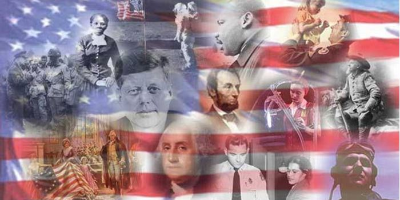The Progressive Era 1900-1920 (1 ottob 1900 anni – 1 marzo 1920 anni)
Descrizione:
-dominated the first two decades of 1900 politics-urban, middle-class reformers
-wanted to increase the role of the government in reform while maintaining a capitalist economy
-didn't intensify regional and class differences like the populists
-roots lay in associations such as the National Women Suffrage Association, the American Bar Association, and the National Municipal League
-journalists wrote exposes of corporate greed and misconduct, known as muckrakers, helped the progressive movement
-Some famous exposes: The Shame of the Cities, History of Standard Oil, and The Jungle
-changed public attitudes on education and government regulation
-groups formed to fight discrimination such as the National Association for the Advancement of Colored People (NAACP)
-ballot initiative: voters could propose new laws
-referendum: allows the public to vote on new laws
-recall election: gave voters the power to remove officials from office before their term expires
-won limitations on the length of the work day, minimum wage requirements, child labor laws, and urban housing codes
-many states adopted progressive income taxes as well
-Theodore Roosevelt: NEW NATIONALISM....directed the justice department to investigate a major railroad company and then broke it up following the Sherman Antitrust Act. Negotiated a labor conflict between coal mine owners and workers. Handled Latin American affairs strongly. Following "The Jungle" he urged Congress to pass the Meat Inspection Act, which created federal standards for meatpacking factories. Passed the Pure Food and Drug Act which required all processed food and drugs to include ingredient labels. Created the National Park Service and the National Forest Service
-William Howard Taft: Sixteenth amendment which instituted a national income tax. 17th amendment which allowed for the direct election of senators. Pushed monopolies more aggressively than Roosevelt. "Dollar diplomacy", secure favorable relationships with Latin America and East Asian countries by providing monetary loans
-Era marks increasing involvement of the federal gov't. in daily lives of citizens
-Prohibition
-Woodrow Wilson: NEW FREEDOM...argued that the federal gov't. had to assume greater control over businesses to protect man's freedom. Saw all trusts as monopolies which violated freedom for workers and consumers. Created the Federal Trade Commission, the Clayton Antitrust Act of 1914 and the Federal Reserve System
-The movement achieved many of its goals, but lost the support of those whose interest had been met
-the Movement ended at the end of WWI and the Spanish Flu as well as the effects of the Red Scare
Aggiunto al nastro di tempo:
Data:
1 ottob 1900 anni
1 marzo 1920 anni
~ 19 years
